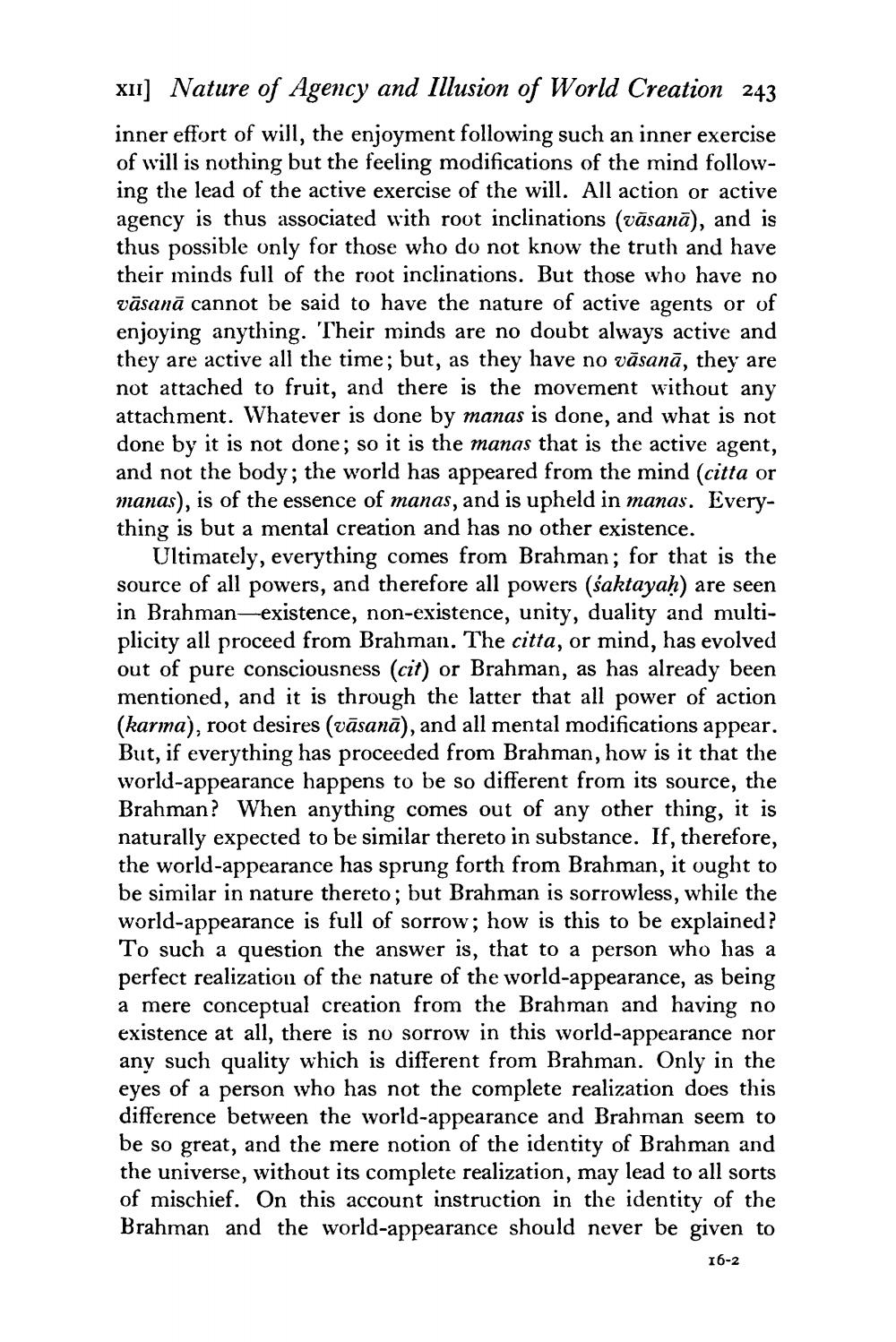________________
XII] Nature of Agency and Illusion of World Creation 243 inner effort of will, the enjoyment following such an inner exercise of will is nothing but the feeling modifications of the mind following the lead of the active exercise of the will. All action or active agency is thus associated with root inclinations (vāsanā), and is thus possible only for those who do not know the truth and have their minds full of the root inclinations. But those who have no vāsanā cannot be said to have the nature of active agents or of enjoying anything. Their minds are no doubt always active and they are active all the time; but, as they have no vāsanā, they are not attached to fruit, and there is the movement without any attachment. Whatever is done by manas is done, and what is not done by it is not done; so it is the manas that is the active agent, and not the body; the world has appeared from the mind (citta or manas), is of the essence of manas, and is upheld in manas. Everything is but a mental creation and has no other existence.
Ultimately, everything comes from Brahman; for that is the source of all powers, and therefore all powers (saktayaḥ) are seen in Brahman-existence, non-existence, unity, duality and multiplicity all proceed from Brahman. The citta, or mind, has evolved out of pure consciousness (cit) or Brahman, as has already been mentioned, and it is through the latter that all power of action (karma), root desires (vāsanā), and all mental modifications appear. But, if everything has proceeded from Brahman, how is it that the world-appearance happens to be so different from its source, the Brahman? When anything comes out of any other thing, it is naturally expected to be similar thereto in substance. If, therefore, the world-appearance has sprung forth from Brahman, it ought to be similar in nature thereto; but Brahman is sorrowless, while the world-appearance is full of sorrow; how is this to be explained? To such a question the answer is, that to a person who has a perfect realization of the nature of the world-appearance, as being a mere conceptual creation from the Brahman and having no existence at all, there is no sorrow in this world-appearance nor any such quality which is different from Brahman. Only in the eyes of a person who has not the complete realization does this difference between the world-appearance and Brahman seem to be so great, and the mere notion of the identity of Brahman and the universe, without its complete realization, may lead to all sorts of mischief. On this account instruction in the identity of the Brahman and the world-appearance should never be given to
16-2




